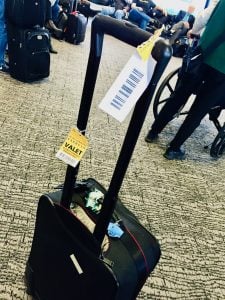 Notabene has teamed up with blockchain analysis firm Chainalysis to bring a “scalable” Travel Rule solution to cryptocurrency-focused businesses.
Notabene has teamed up with blockchain analysis firm Chainalysis to bring a “scalable” Travel Rule solution to cryptocurrency-focused businesses.
Crypto-related businesses are working consistently to meet updated regulatory guidelines involving counterparty risk. According to a blog post by Chainalysis, the most notable of these requirements might be the Travel Rule, which is relevant to just about every crypto-focused business operating in FATF-compliant jurisdictions.
The blockchain firm added that the Travel Rule states and requires that Virtual Asset Service Providers (VASPs), like digital currency exchanges, must accurately “identify the originators and beneficiaries of cryptocurrency transactions initiated by their users above a certain size.” Chainalysis also mentioned that in cases where the counterparty of those transactions is a VASP, “the original VASP must then transmit that user information to the second VASP,” Chainalysis clarified.
Chainalysis added:
“In order to comply, VASPs need simple tools that allow them to identify transactions that meet the rule’s requirements, pull users’ KYC information, and send it to VASP counterparties as the transactions are completed. All of this needs to happen instantly to avoid compromising user experience, which is no easy task for cryptocurrency businesses processing thousands of transactions per day.”
Chainalysis further noted that they’ve joined forces with Notabene to offer a “frictionless, scalable” tool that does “exactly that.” With their integrated solution, crypto businesses may automate transactions with “trusted” counterparties, while offering them with the data they require to detect “suspicious” activity while adhering to their regulatory guidelines. Chainalysis added that “by adopting now, cryptocurrency businesses can start complying with the Travel Rule immediately.” This should put them in “a better position with regulators, and gain a market advantage,” the blockchain firm noted.
The Travel Rule is supposed to assist crypto-related companies or businesses with lowering counterparty risk while creating a source of funds for digital currency received by their users. Although certain jurisdictions have implemented the rule in a different manner, the version suggested by FATF states that VASPs need to exchange counterparty details with each other on crypto transfers valued at more than $1,000 or €1,000.
As noted by Chainalysis, the originator and beneficiary VASPs have to provide each other with the following information:
- The Originator VASP has to provide the originator’s name, their cryptocurrency address, and their physical address or national ID number, or customer ID number or date and place of birth.
- The Beneficiary VASP needs to provide the name of the beneficiary and their crypto address.
Chainalysis further noted:
“At first glance, the Travel Rule appears to be a simple matter of transmitting counterparty information between two VASPs. But in reality, the Travel Rule requires end-to-end changes to existing compliance processes, as VASPs must identify and take action on all transactions that meet the rule’s threshold in real time. This presents significant technical challenges, especially to implement at scale, as blockchain analysis shows that roughly 12% of all VASP transactions in February 2021 — roughly 2 million transfers overall — would qualify under the current FATF recommended threshold of $1000.”
(Note: to learn more about the technical challenges introduced by the Travel Rule, check here.)
Chainalysis Chief Government Affairs Officer Jesse Spiro stated:
“Notabene’s platform provides a comprehensive, seamless, accessible offering that meets and exceeds the unique requirements of VASPs around the world. Through this integration, VASPs will have an additional tool for regulatory compliance, risk mitigation and data-driven decisioning.”
Pelle Braendgaard, CEO of Notabene, remarked:
“In a fast-growing and increasingly competitive industry, we are seeing that crypto companies who view regulatory compliance as a market advantage are performing better. By taking action on requirements like the Travel Rule on time, they are able to unlock new opportunities: build the next suite of regulatory compliant financial products, receive licenses to operate in the biggest financial hubs, and expand their reach into new customer segments. We are excited to play a pivotal role in helping companies achieve their growth plans. Through our partnership with Chainalysis, we provide crypto companies with a full solution to do compliance at scale.”

